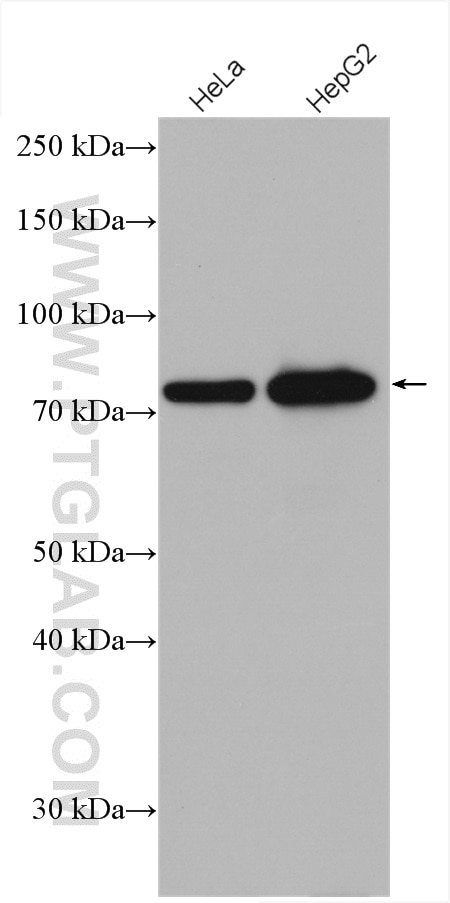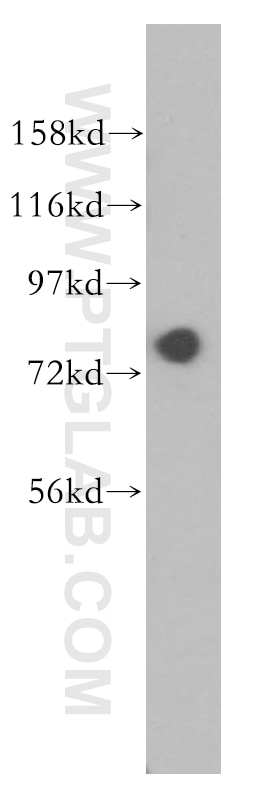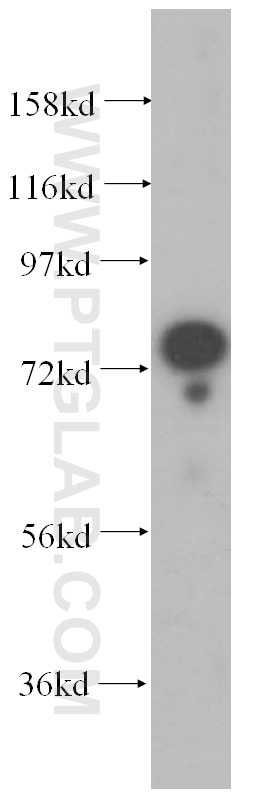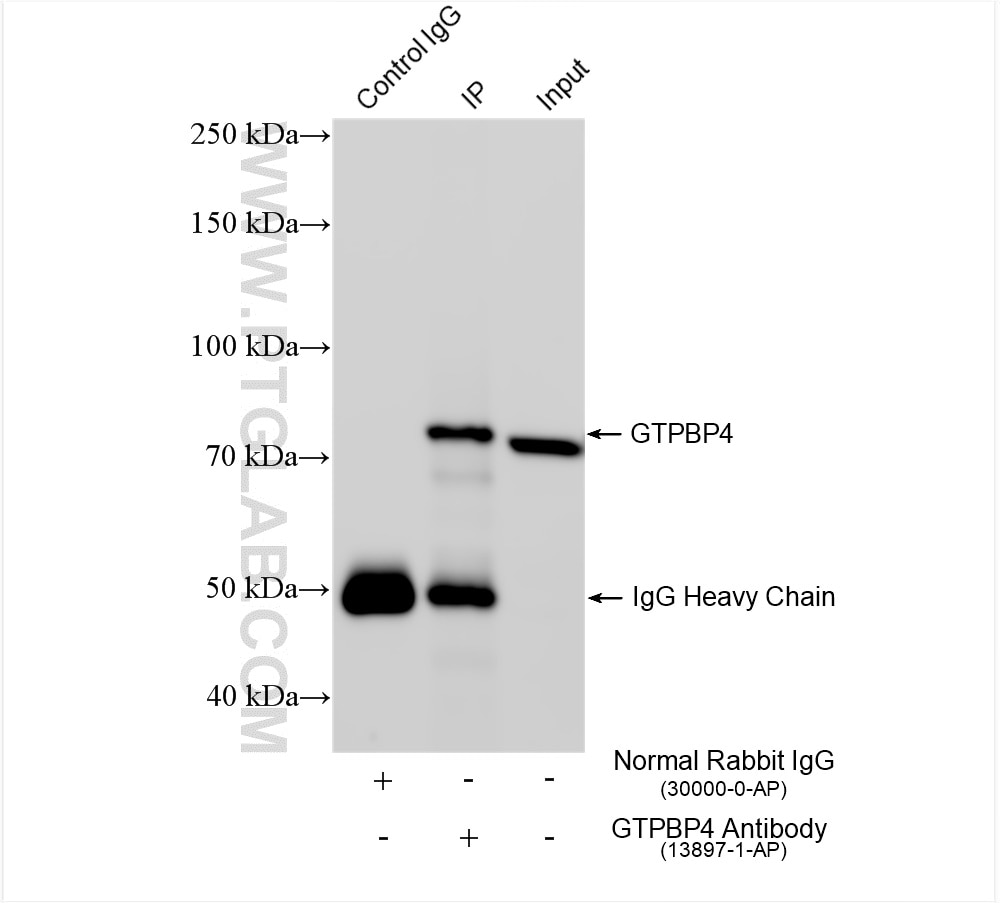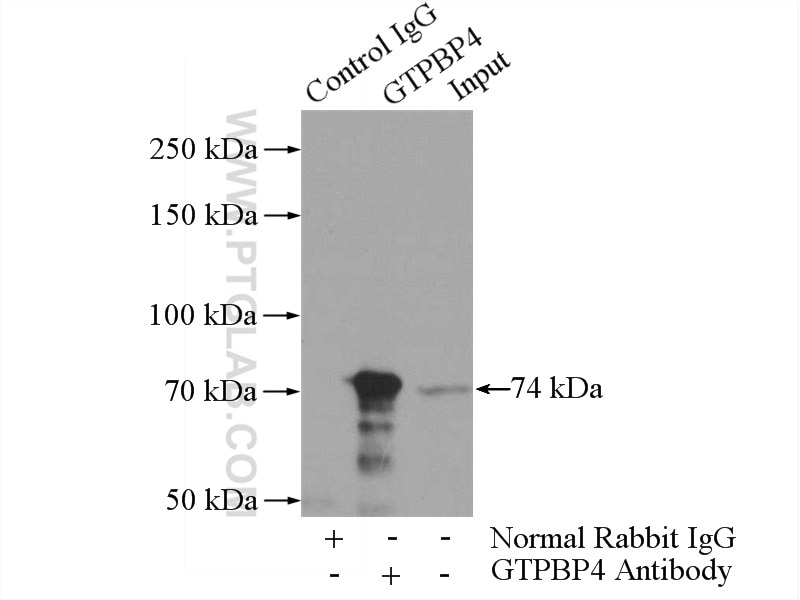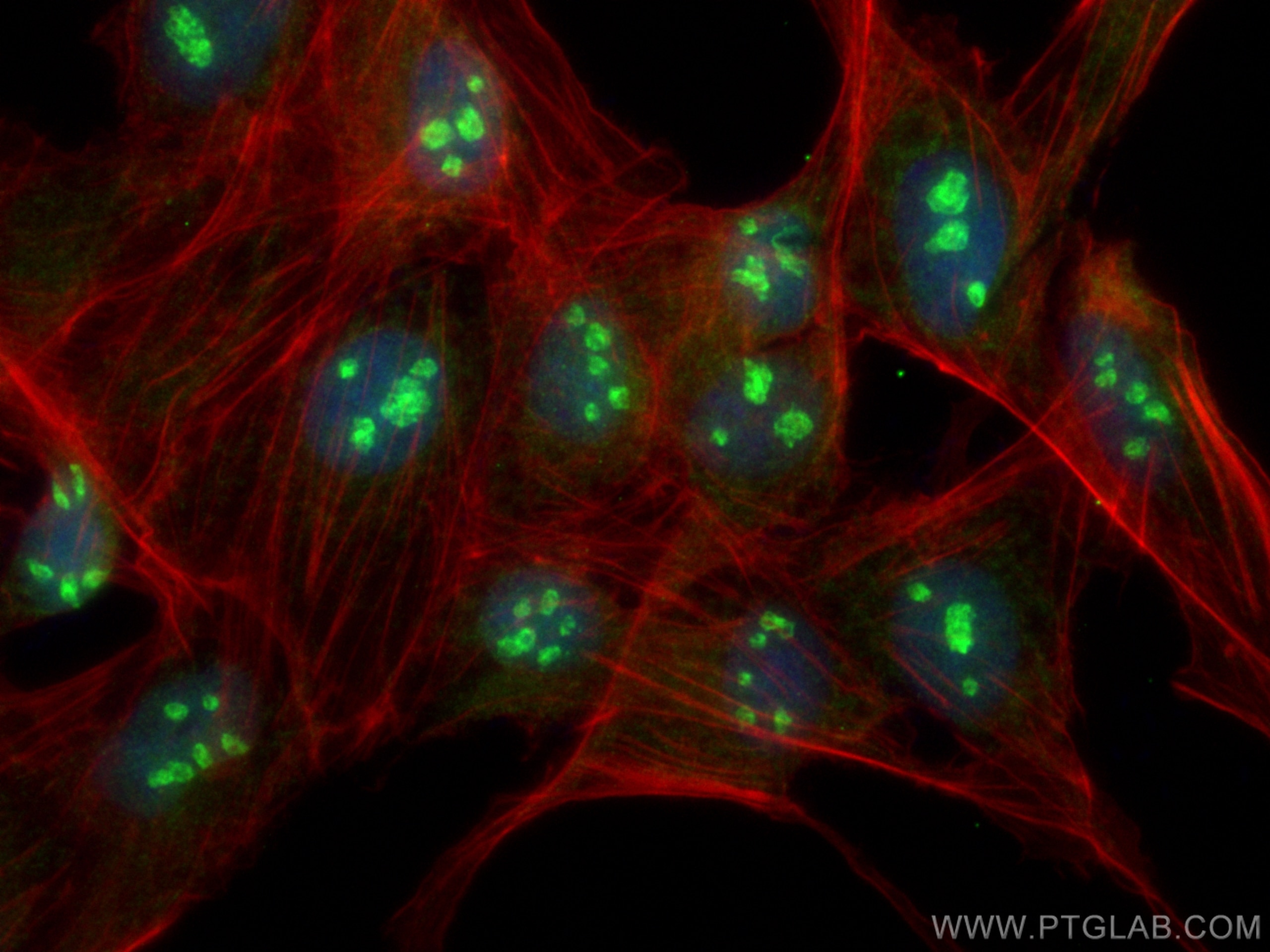- Featured Product
- KD/KO Validated
GTPBP4 Polyklonaler Antikörper
GTPBP4 Polyklonal Antikörper für WB, IF/ICC, IP, Indirect ELISA
Wirt / Isotyp
Kaninchen / IgG
Getestete Reaktivität
human, Maus
Anwendung
WB, IF/ICC, IP, Indirect ELISA
Konjugation
Unkonjugiert
Kat-Nr. : 13897-1-PBS
Synonyme
Geprüfte Anwendungen
Produktinformation
13897-1-PBS bindet in WB, IF/ICC, IP, Indirect ELISA GTPBP4 und zeigt Reaktivität mit human, Maus
| Getestete Reaktivität | human, Maus |
| Wirt / Isotyp | Kaninchen / IgG |
| Klonalität | Polyklonal |
| Typ | Antikörper |
| Immunogen | GTPBP4 fusion protein Ag4859 |
| Vollständiger Name | GTP binding protein 4 |
| Berechnetes Molekulargewicht | 634 aa, 74 kDa |
| Beobachtetes Molekulargewicht | 74 kDa |
| GenBank-Zugangsnummer | BC038975 |
| Gene symbol | GTPBP4 |
| Gene ID (NCBI) | 23560 |
| Konjugation | Unkonjugiert |
| Form | Liquid |
| Reinigungsmethode | Antigen-Affinitätsreinigung |
| Lagerungspuffer | PBS only |
| Lagerungsbedingungen | Store at -80°C. 20ul Größen enthalten 0,1% BSA. |
Hintergrundinformationen
GTP-binding proteins are GTPases and function as molecular switches that can flip between two states: active, when GTP is bound, and inactive, when GDP is bound. 'Active' in this context usually means that the molecule acts as a signal to trigger other events in the cell. When an extracellular ligand binds to a G-protein-linked receptor, the receptor changes its conformation and switches on the trimeric G proteins that associate with it by causing them to eject their GDP and replace it with GTP. The switch is turned off when the G protein hydrolyzes its own bound GTP, converting it back to GDP. But before that occurs, the active protein has an opportunity to diffuse away from the receptor and deliver its message for a prolonged period to its downstream target.
